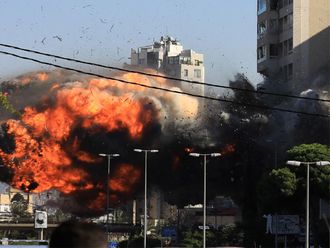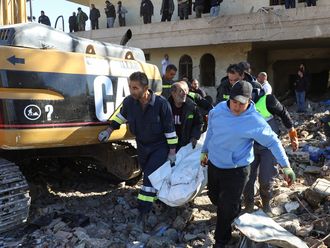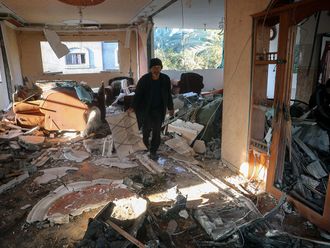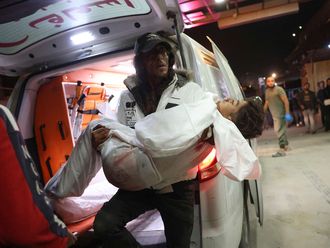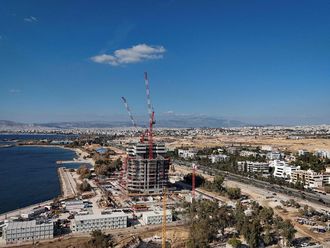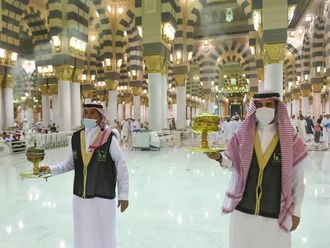Below are some facts about the mostly Sunni Arab militias called Awakening Councils (Majalis Al Sahwa) that helped the US military drive Al Qaida from many of their former strongholds in Iraq.
Who are the Sahwa?
The Sahwa movement started when a group of Sunni Arab tribal sheikhs in Anbar province in western Iraq rose up against Al Qaida in late 2006. They rallied thousands of supporters, many of whom were sick of the Sunni Islamist group's brutality, its targeting of civilians and harsh interpretation of Islam.
The militias were quickly recruited and paid by the U.S. military, who were only too pleased to have allies in a battle against an insurgency they seemed to be losing.
The Sahwas manned checkpoints, raided houses and helped turn known Al Qaida militants over to the authorities. The model of cooperation was rolled out across much of Iraq.
At their peak, they numbered some 100,000, although thousands have since found other work and left the movement.
What have they achieved?
Within 18 months of the Sahwa uprising in Anbar, Al Qaida in Iraq and allied insurgent groups went from de facto rulers of the vast desert province to fugitives on the run.
US officials say the Sahwas have helped drastically cut violence across Iraq, largely by manning checkpoints that have stopped bombers entering cities.
They have provided vital intelligence to US forces on militants in Sunni Arab communities that would have been difficult to gather without their cooperation.
Sahwas have fought alongside US troops in gun battles against insurgents and killed and captured many.
Ultimately, their contribution to cutting violence must be seen in the context of the deployment to Iraq of a "surge" of an extra 30,000 US troops, ordered by former US president George W. Bush in 2007. The change in strategy saw more troops fighting militants in dangerous neighborhoods, and the Sahwa movement was crucial in enabling the plan to work effectively.
What happens next?
The Iraqi government started taking control of the Sahwas from the US military last year, and has pledged to take 20 per cent of the movement's members into its security forces and find other jobs and civilian training for the rest.
How the Shiite-led government handles the Sahwa is seen as a key test of whether Iraq's Shiite majority and once dominant Sunni minority can reconcile after years of bloodshed.
They are not supposed to remain a militia forever. Those that are not absorbed by the police or army are expected to be given other government jobs or assistance in setting themselves up as self-employed farmers, barbers, mechanics and so on.
The founders of the original Sahwa movement in Anbar province have formed a political party, and are distancing themselves from the group's military past.
What are the concerns about them?
Many of the Sahwa are former Sunni insurgents who fought U.S. and Iraqi forces, planted bombs, and killed civilians, making the Shiite-led government deeply mistrustful of them.
The government says it will not work with Sahwa members guilty of major crimes or who have blood on their hands. But an amnesty is supposed to cover most of them.
Uncertainty over how the government will apply this has led Sahwa members to fear arrest and has raised tensions. Several senior Sahwa members have been arrested in recent weeks, sparking clashes with government forces.
A series of explosions in the Iraqi capital followed shortly after the arrests, but security forces and Sahwa leaders say they are likely to be the work of Al Qaida.
Some Sahwa members could become insurgents again if tensions continue and jobs are not found for them. US military officials say that is unlikely on a large scale, but Iraq's recent security gains are fragile and the outlook is highly uncertain ahead of a national election late in the year.


